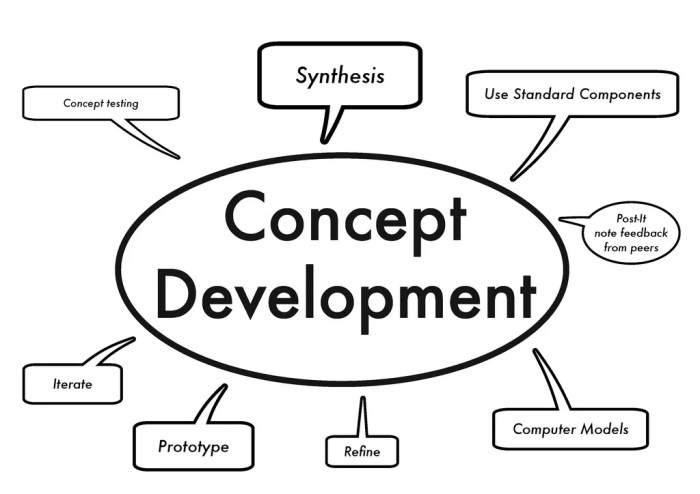Embark on an enlightening journey into the realm of concept development practice page 33-2, where innovation and strategy converge to shape successful marketing campaigns. This comprehensive guide unveils the intricacies of concept development, empowering you with the knowledge and techniques to transform your marketing initiatives into resounding triumphs.
Concept development lies at the heart of effective marketing, serving as the cornerstone for captivating campaigns that resonate with target audiences. Delve into the process of concept development, unraveling the stages and methods involved in generating, evaluating, and refining concepts that drive brand success.
Concept Development: Concept Development Practice Page 33-2

Concept development is a critical stage in the marketing process that involves generating, evaluating, and refining ideas for new products or services. It plays a pivotal role in ensuring that products and services align with customer needs and market demands.
Process of Concept Development
The process of concept development typically involves the following stages:
- Concept generation: Brainstorming and developing a pool of ideas.
- Concept screening: Filtering out ideas that are not feasible or desirable.
- Concept evaluation: Assessing the potential of each idea based on various criteria.
- Concept testing: Gathering feedback from potential customers to validate the concept.
- Concept refinement: Modifying the concept based on testing results to improve its effectiveness.
Methods for Concept Generation, Concept development practice page 33-2
There are various methods for concept generation, including:
- Brainstorming: Group discussions to generate a wide range of ideas.
- Surveys: Collecting customer input through questionnaires.
- Focus groups: In-depth discussions with a small group of customers.
- Customer observation: Observing customer behavior to identify unmet needs.
Criteria for Concept Evaluation
Concepts are evaluated based on various criteria, such as:
- Attractiveness: The extent to which the concept appeals to potential customers.
- Feasibility: The ability to develop and market the concept successfully.
- Profitability: The potential for the concept to generate profits.
Concept Testing
Concept testing involves gathering feedback from potential customers to validate the concept and identify areas for improvement. Methods for concept testing include:
- Concept boards: Presenting the concept visually and collecting feedback.
- Surveys: Using questionnaires to gather quantitative data on customer perceptions.
- Focus groups: Conducting in-depth discussions to explore customer reactions and insights.
Concept Refinement
Based on testing results, concepts are refined to improve their effectiveness. Refinements may involve:
- Modifying the concept’s features or benefits.
- Adjusting the target market or positioning.
- Changing the concept’s name or packaging.
Applications of Concept Development
Concept development is widely used in various industries, including:
- Consumer products: Developing new products for the mass market.
- Industrial products: Creating innovative solutions for businesses.
- Services: Designing new services to meet customer needs.
Case Study: Concept Development for a New Product
XYZ Company, a leading consumer products manufacturer, embarked on a concept development process to create a new breakfast cereal. The process involved the following stages:
- Concept generation:The team brainstormed and generated a pool of ideas.
- Concept screening:Ideas that were not feasible or desirable were filtered out.
- Concept evaluation:The remaining concepts were evaluated based on attractiveness, feasibility, and profitability.
- Concept testing:The most promising concept was tested with potential customers using focus groups.
- Concept refinement:Based on testing results, the concept was refined to improve its appeal and feasibility.
The concept development process resulted in the successful launch of a new breakfast cereal that met customer needs and exceeded sales expectations.
Detailed FAQs
What is the significance of concept development in marketing?
Concept development is crucial in marketing as it lays the foundation for creating compelling and effective marketing campaigns. It enables marketers to identify and refine concepts that resonate with target audiences, leading to increased brand awareness, engagement, and conversions.
How does the process of concept development unfold?
The process of concept development typically involves several stages, including concept generation, evaluation, and refinement. It begins with brainstorming and generating a wide range of ideas, which are then evaluated based on specific criteria. The most promising concepts are then refined and tested to ensure their effectiveness before being implemented in marketing campaigns.

